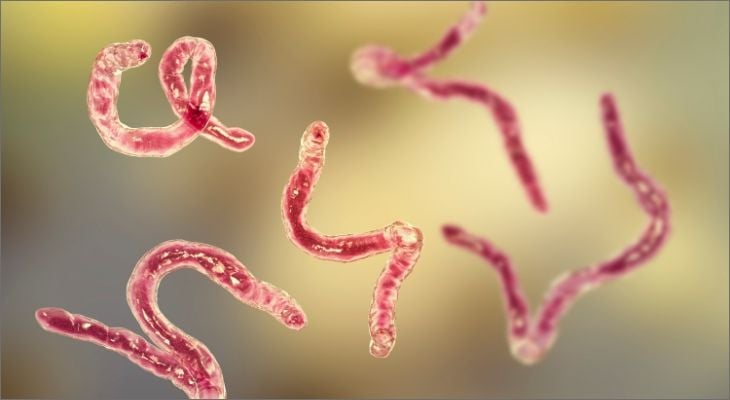
Hookworms are small, thread-like parasites of the small intestine where they attach and suck large amounts of blood. These parasites are found in almost all parts of the world, being common in dogs, and occasionally seen in cats.
Symptoms are usually diarrhea and weight loss. The parasites can actually suck so much blood that they cause pale gums from anemia, and black and tarry stools. Young puppies can be so severely affected that they die. Infection can be by ingestion of breast milk from an infected mother, by ingestion of infected eggs, or by skin penetration of infected larvae.
Since the adult parasites are so small, they are rarely seen in the stool. Diagnosis of these parasites is by the veterinarian or laboratory finding the microscopic eggs in the stool.
There are a variety of medications that can kill hookworms. The important point to know is that there is no one medicine that will kill all the types of intestinal parasites that exist. Some of the monthly "heartworm preventatives" will also work to treat hookworms.
People exposed to hookworms can develop a rash called cutaneous larval migrans. Infected larvae, usually from contaminated yards, can penetrate human skin and cause red tracts.
